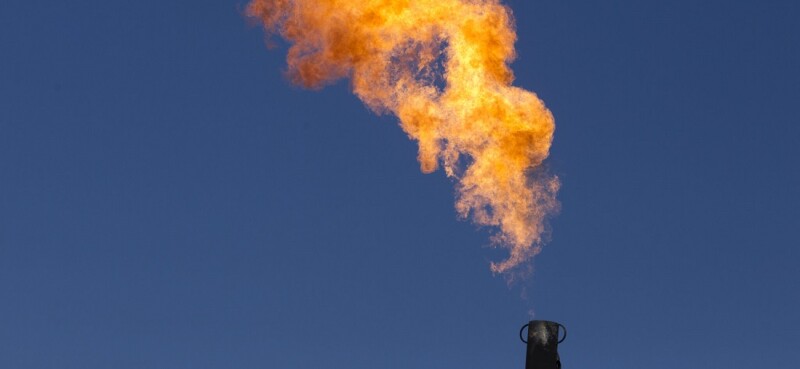At a Texas Railroad Commission meeting in September, Commissioner Jim Wright chastised Callon Petroleum for flaring natural gas at a drilling site, saying it should “find a better solution.”
But his comment came after he voted to grant the Houston-based company a flaring permit that allows Callon to continue flaring gas at the Crockett 15 well in the Permian Basin into the seventh consecutive year.
In Texas, State Rule 32 prohibits flaring natural gas at the wellhead except under a few specific conditions. Oil and gas companies are sometimes forced to flare gas during emergencies, to release high pressure in pipes, but more often they flare unwanted gas that comes to the surface in the oil drilling process. Flaring contributes to local air pollution and greenhouse gas emissions.
Since 2019, when the Texas Methane and Flaring Coalition, an industry group, was formed and the Railroad Commission appointed a “Blue Ribbon Task Force” on flaring in 2020, the practice has received more scrutiny in Texas.
But whatever the reason for flaring, the Railroad Commission has granted companies wide leeway to apply for exceptions to this rule and has long approved almost all of their flaring requests.
The commission has granted thousands of Rule 32 exceptions so far this year, requiring companies to provide little evidence that they tried to prevent flaring.
One acceptable justification for flaring, according to the commission, is that following the antiflaring rule would limit gas production. Advocates say the permit process is a “rubber stamp” that makes the antiflaring rule useless.
“If, at the end of the day, [regulators] don’t have the wherewithal to say, ‘No, I’m not approving this flaring exception,’ then there might as well not even be a rule,” said Virginia Palacios, executive director of Commission Shift, an advocacy organization focused on reforming the Railroad Commission, the state agency responsible for regulating the oil and gas industry.
A spokesperson for the Railroad Commission said the agency “strictly enforces the statewide flaring rule.”

